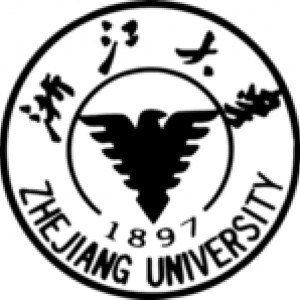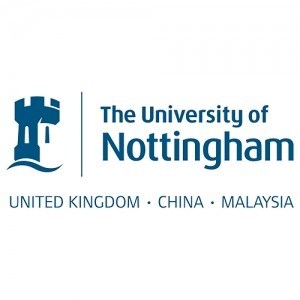Photos of university / #zhejiang_university
The Philosophy, Mathematics, and Economics program at Zhejiang University offers a comprehensive interdisciplinary curriculum designed to cultivate students' critical thinking, analytical skills, and problem-solving abilities across three fundamental fields. This program aims to develop well-rounded individuals capable of addressing complex real-world challenges by integrating philosophical inquiry, mathematical rigor, and economic analysis. Students will engage with core concepts and methodologies from each discipline, gaining a deep understanding of how philosophical perspectives influence economic theories, how mathematical models underpin economic and philosophical reasoning, and how economic principles are applied in practical scenarios. The program emphasizes active learning through lectures, seminars, and research projects, fostering an environment of intellectual curiosity and innovation. Graduates will be equipped with the skills necessary for careers in academia, research institutions, economic policy-making, and the technology sector, as well as for further postgraduate study. They will benefit from Zhejiang University’s distinguished faculty, cutting-edge research facilities, and extensive academic resources, which provide a stimulating environment for advanced learning and development. With a curriculum that balances theoretical knowledge with applied skills, the program prepares students to become thoughtful leaders and decision-makers in a rapidly changing world. Fully aligned with modern educational standards, the Philosophy, Mathematics, and Economics program reflects Zhejiang University’s commitment to fostering interdisciplinary talent and promoting global academic excellence.
Economics Major (PME) , 4 years
The program allows substantial flexibility that students can enjoy to discover and explore their gifts and to tailor their own study programs.
- Courses in Economics: 90 credits
- Courses in either or both of Philosophy and Mathematics: 30 credits
The fourth school year will offer special courses that facilitate topic and research oriented teaching, led by cross-disciplinary (PM, PE or ME) problems. These courses aim to bring together different disciplines, as well as the integration of economic theories and historical realities of the Chinese society, so as to encourage students to further develop their learning in an even broader knowledge space supplemented by practical understandings.
III. Total Credits:
140 credits
International students must take Survey of China and Chinese language courses
IV. Course Instruction
All instructions are conducted in English.
All the teachers have international experiences.
Chinese language courses are provided to guarantee a successful Chinese
education with the following objectives:
l International students possess ability of fluent oral expression and full comprehension of information exchanged in Chinese;
V. Courses
1. Design Principles
1) PME represents the three most fundamental as well as most important aspects of human thoughts and social life. Philosophy is the representation of conceptual thinking and the root of critical thinking; mathematics is the representation of symbolic thinking and the basis for forming data-analytical thinking; economics is the representation of the most human activity since the inception of political society. The PME curriculum design unites general critical thinking, data-analytical thinking and social active thinking into one integral whole, in order to give students comprehensive ability to grasp the transcendental, the analytical and the experiential.
2) In principle, the courses are designed to reflect organic links among philosophy, mathematics and economics. These three disciplines share commonalities in terms of mental exercises and training: Logic forms part of the essential basic knowledge of philosophy and is also the foundation for mathematics at the same time, whereas mathematical knowledge is indispensable and critical for applied knowledge of economics. In our curriculum design, philosophical courses give stress to the training of logic and are connected with mathematical exercises and training, with the aim to provide clear and effective mental training for the study of economics. As far as the connection between mathematics and economics are concerned, the courses emphasize in particular the effectiveness and practicality of mathematical knowledge in its role as instrument and methodology for economic studies.
3) In choosing their major in one of the three areas, students must also take into consideration of the general PME framework. No matter which subject is chosen, courses worth 30 credits in the other two areas are equally required. Students who have chosen economics as their major must accomplish at least 30 credits in either/both of Mathematics and Philosophy.
Applicants must be non-Chinese citizens between the ages of 18-30 with senior high school diploma, in good health and they must abide by Chinese laws as well as ZJU’s rules and regulations; they must also respect Chinese culture and customs.
Non-native English speakers must provide proofs of proficiency in English (TOEFL or IELTS ).
We plan to enroll 20 students, all granted with full scholarship which covers tuition fee, accommodation fee on campus, living allowance as well as medical insurance.
— Tuition fee: CNY 131,200.
— Accommodation on campus: CNY 32,000.
— International student medical insurance: CNY 3,200. (Relevant medical insurance items can be found at www.lxbx.net).
— Living allowance: CNY 64, 400 (CNY 1,400 per month for 46 months).
The Philosophy Mathematics and Economics program at Zhejiang University is an interdisciplinary undergraduate program designed to integrate core elements of philosophy, mathematics, and economics, providing students with a comprehensive understanding of each field and their interrelations. This program aims to cultivate students' analytical thinking, logical reasoning, and philosophical inquiry, equipping them with the skills necessary to analyze complex problems in economics through rigorous mathematical methods and philosophical perspectives.
The curriculum combines courses from all three disciplines, including foundational mathematics such as calculus, linear algebra, probability, and statistics; essential economic theories, microeconomics, macroeconomics, and econometrics; and key philosophical subjects like epistemology, ethics, logic, and the history of philosophy. The program emphasizes quantitative analysis and critical thinking, encouraging students to apply mathematical models to economic questions while contemplating the philosophical implications of economic theories and methodologies.
Students enrolled in this program benefit from a team of experienced faculty members with expertise spanning philosophy, mathematics, and economics. The program is structured to promote interdisciplinary research and project-based learning, preparing graduates for careers in academia, economic analysis, policy-making, or further postgraduate study. It also offers opportunities for internships, conferences, and collaborations with international universities, fostering a global perspective.
Graduates of the Philosophy Mathematics and Economics program are expected to develop a well-rounded skill set that includes strong analytical abilities, ethical reasoning, and innovative thinking. This interdisciplinary approach aims to produce graduates capable of addressing complex societal and economic challenges with a philosophical and quantitative foundation. The program aligns with Zhejiang University's commitment to fostering innovative talents who can contribute meaningfully to academia, government, and industry both domestically and internationally.










